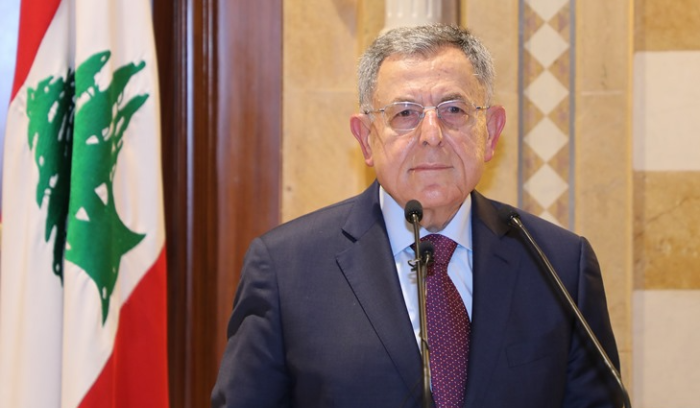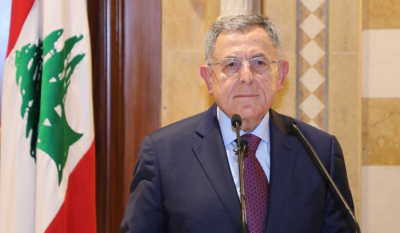Former Prime Minister Fouad al-Siniora stated that "what occurred in these elections reflects a shift in convictions and a change in the general mood among the Lebanese towards shedding light on the core problem in Lebanon, which is fundamentally a political issue. Corruption in Lebanon is political corruption, which is largely influenced by the full control that Hezbollah and its allied parties have over the Lebanese state, usurping its free decision-making."
In an interview with "Asharq" television, he added that this situation is what drives the Lebanese, especially under the impact of the major crises ravaging Lebanon and the economic and living collapses. This, in addition to the effects of national and political factors, has led to this transformation in the convictions and mood of the Lebanese. This is what has been reflected in the changes in the membership of the new parliament. I believe this should pave the way for serious work by this new group of sovereign MPs to form alliances, lists, and parliamentary blocs capable of putting forth a proper vision for the future regarding how to confront the dominance exercised by Hezbollah over the Lebanese state to restore it and enable it to regain its vitality.
He continued, "All Lebanese and all parties are required to return to the state and under the state's conditions, convincing the Lebanese that there is a genuine collective will to confront and tackle the problems that Lebanon is now engulfed in."
In response to a question about how to confront Hezbollah, he noted, "First, I must point out that Mr. Hassan Nasrallah spoke before the elections about wanting a constitutional majority, which means a majority exceeding the number of all Shiite MPs, thus allowing the party to gain representation from the rest of the sects represented in the parliament, enabling it to increase its control over national decision-making. This did not happen as Mr. Hassan Nasrallah wanted. Therefore, we witnessed this shift in the number of MPs and also in the nature and convictions of these numbers, particularly among civil society and sovereignty advocates, which collectively led to this shift in the parliamentary majority towards those who do not agree with the agendas of Hezbollah and its allied parties. Instead of the 72 MPs that those parties held in 2018, this number has decreased to about 60, thus the majority now lies with the sovereign forces."
He added, "The major challenge now, clearly and frankly, is that we have moved beyond what can be termed as the lesser jihad, and now we must succeed in the battle of the greater jihad, which involves having a nationally agreed-upon position among these sovereign parties to form at least a minimum of shared convictions, and to agree on a transitional program on how to engage in this political and democratic battle to restore the Lebanese state’s free decision-making and empower it to begin addressing the mounting crises and problems facing Lebanon and the Lebanese to regain national, political, and economic vitality."
He emphasized, "These issues are crucial to refocusing attention and addressing the essence of the problem, rather than merely talking about its manifestations. The most significant of these manifestations is political corruption, but its root is political in that the Lebanese state no longer effectively represents in its performance and actions what the Lebanese want to find solutions to the significant number of issues that Lebanon and the Lebanese are immersed in."
Regarding his thoughts on the new parliament, Al-Siniora stated, "In 2008, when the sovereign forces held 72 seats in the parliament, Hezbollah at that time, through Mr. Ghaleb Abu Zainab, declared that 'if you want to form a majority government, this government will remain on paper as long as there is paper in Lebanon.' Now there are changes and shifts in mood, approaches, mindsets, and convictions among the Lebanese. This requires everyone to learn from the lessons we experienced in 2009, which was represented by the disavowal by the March 14 forces and the withdrawal of some of its members, as well as dealing with irresponsible practices. Some of these sovereign forces acted according to their small matters, demands, and interests, neglecting the fundamental issues that they should have united over and directed all their efforts towards defending Lebanon and its sovereignty."
He added, "Now, all of Lebanon is in danger, and this necessitates a correct vision and strong national decision from everyone to clarify to the Lebanese that it is impossible to resolve the major national, economic, and living issues we face without political accompaniment, meaning that everyone must return to the state and under its conditions to organize national, political, economic, and living affairs."
He continued, "We have major impending obligations that we must prepare to face: the first obligation is the election of a Speaker of the Parliament and the election of a Deputy Speaker, followed immediately by conducting the mandatory parliamentary consultations to appoint someone to form the government. Also, the third obligation is to elect a new President of the Republic, which must take place during the months of September or October. Additionally, there are several essential decisions that the government and parliament must make concerning the essence of the reform process in many administrative, economic, financial, and monetary issues and matters related to the proper governance of the Lebanese state."
He emphasized, "All these matters must be taken seriously now, especially given the nature of this council's composition, which indeed requires a clear and committed position, far from all forms of violence, and a return to constitutional and democratic norms to achieve progress towards restoring the organization of Lebanese state affairs."




